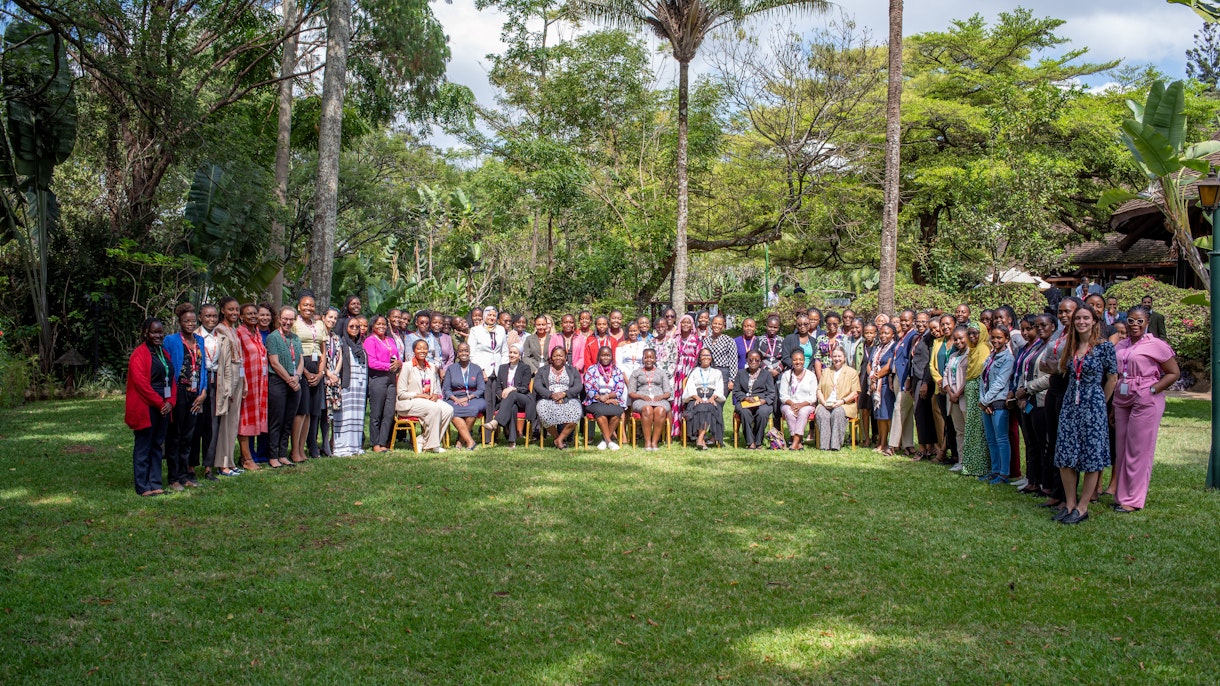Nearly 200 policy makers from across Africa take part in IEA energy efficiency training week in Nairobi
News

The four-day event held in partnership with the Kenyan government brought together national and regional policy makers to discuss how energy efficiency can accelerate Africa’s clean energy efforts
The International Energy Agency (IEA) held its Africa Energy Efficiency Policy in Emerging Economies Training Week in Nairobi from 18-21 March. Hosted in partnership with the Ministry of Energy and Petroleum of Kenya, and with support from the African Development Bank (AfDB), it marked a key milestone in the IEA’s growing work on energy efficiency with African countries.
The training week brought together almost 200 policy makers and energy professionals from across the continent to share experience and expertise in energy efficiency policy and to underline the role efficiency can play as emerging and developing economies work to meet their energy and climate goals.
With a population growing faster than any other region in the world, Africa’s electricity demand is expected to grow by 75% by 2030. According to IEA’s Sustainable Africa Scenario, a key challenge for African policymakers and leaders is to ensure universal access to modern energy services by 2030, which means accelerating the current progress by three times. As underscored during IEA’s recent 2024 Ministerial Meeting, reaching energy efficiency, universal energy access and clean energy goals in the region depends on developing effective financing and investment mechanisms.
“Energy efficiency continues to play a critical role in improving living standards around the world and is the first and best response to simultaneously meet affordability, supply security and climate goals” said Brian Motherway, Head of the IEA’s Office of Energy Efficiency and Inclusive Transitions. “For Africa, efficiency must be at the heart of the energy access story to help realise the continent’s vast energy potential while supporting the most vulnerable in our society.”
The global energy crisis has highlighted the urgency of accelerating investment in more affordable and cleaner energy in Africa, outlining the significant potential for energy efficiency.
“As Kenya looks to drive forward its clean energy transition, there is a growing role for energy efficiency in delivering benefits that can ensure affordable, reliable access to electricity,” said Mr. David Mutisya, Director of Energy Efficiency from Kenya’s Ministry of Energy & Petroleum. “We are delighted to host this training week, bringing together experts from across Africa to share experiences and best practices to help us meet our goals”.
Kenya has made strong progress in expanding renewable energy and access to electricity, with renewables accounting for nearly 90% of energy generated and consumed in 2021. Access to electricity has more than doubled over the past decade from 37% in 2013 to 75% in 2022, but as demand increases, energy efficiency can help to accelerate progress in an inclusive and affordable way.
Countries at COP28 in Dubai recently agreed to double the rate of energy efficiency progress this decade to help drive down global greenhouse gas emissions, the rate of improvement set out in the IEA’s Net Zero Pathway.
The training week aimed to build on this progress by bringing together policy makers from across Africa to share perspectives and draw on international best practices. Consisting of five parallel courses – covering energy efficiency in appliances and equipment, transport, buildings, indicators and evaluation, and industry – participants were presented with a detailed introduction to energy efficiency policy packages and took part in a series of sector-focused workshops and group activities aimed at amplifying policy-making capacity both locally and nationally.
The IEA has held three Energy Efficiency Training Weeks in the last six months, including last week in Nairobi, a Southeast Asia week in Jakarta in October 2023 and an India training week in December 2023. The IEA has convened such training weeks since 2015, working with more than 2,000 energy efficiency professionals from more than 120 countries. The participants are primarily from government institutions and supporting organizations in emerging economies.
The training weeks form part of the IEA’s Energy Efficiency in Emerging Economies Programme and are carried out with funding from the Agency’s Clean Energy Transitions Programme. The events aim to help build a community of experts so that effective efficiency policies can play a greater role in clean energy transitions, making energy more affordable and accessible to all.